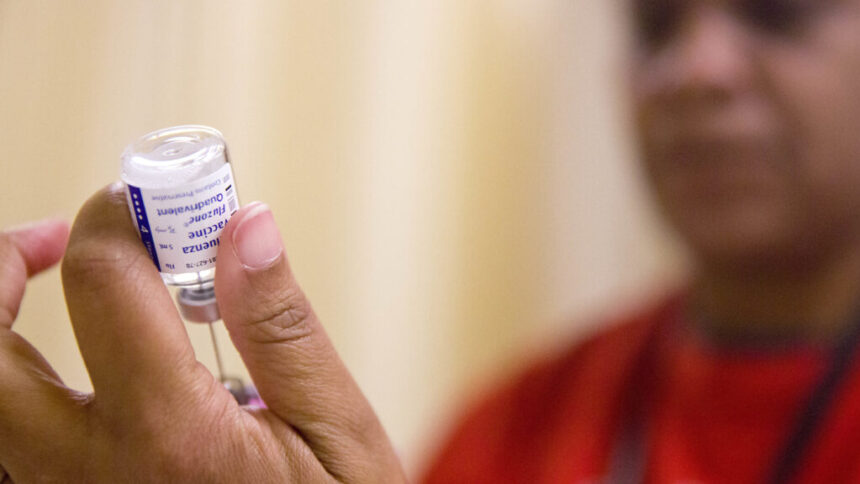A recent decision by a federal vaccine advisory panel, which was newly stacked with handpicked members by health secretary Robert F. Kennedy Jr., recommended that Americans should avoid receiving flu vaccines containing the preservative thimerosal. Despite numerous studies conducted over the past 25 years showing no safety issues related to thimerosal, the panel voted on three motions related to the topic, reflecting concerns raised by new members.
In practical terms, this recommendation is unlikely to have a significant impact on Americans, as only a small percentage of flu vaccine doses in the U.S. market contain thimerosal. Approximately 4% of flu doses are packaged in multi-dose vials with thimerosal to prevent contamination. However, this decision is a victory for Kennedy, a vocal vaccine critic, who has shown his anti-vaccine supporters that he will advocate for their concerns. It also has the potential to sow doubt among the general population regarding the safety of flu vaccines and vaccines in general, which could further decrease vaccine uptake.
Vaccine uptake has already declined since the Covid-19 pandemic, with fewer than half of eligible Americans receiving a flu shot last winter. The figures were particularly low among children, pregnant individuals, and adults. Kennedy recently dismissed all 17 members of the Advisory Committee on Immunization Practices (ACIP) and replaced them with new members who lack expertise in vaccines. This lack of expertise was evident during the recent two-day meeting, where concerns were raised about the high number of pediatric deaths during the 2024-2025 flu season.
One member of the new committee, Robert Malone, downplayed the severity of the flu season’s impact on children, despite the record number of pediatric deaths. The sole pediatrician on the committee, Cody Meissner, opposed the motions to recommend thimerosal-free flu vaccines, citing scientific data that shows thimerosal is not harmful. However, the majority of the committee voted in favor of the recommendations, with one member abstaining.
Thimerosal is not used in pediatric vaccines and was phased out more than 20 years ago due to concerns about its link to autism. Medical organizations involved in ACIP meetings disputed the need for the recent votes, emphasizing the concrete data supporting the safety of thimerosal.
The discussion on thimerosal during the meeting deviated from the usual protocol, with CDC staff members not allowed to present evidence. Instead, a former president of a vaccine-critical group gave a presentation, which was later rebutted by the CDC’s review of the evidence on thimerosal in vaccines. Despite concerns raised by liaison members about the lack of CDC input, the new co-chair of ACIP indicated that similar sessions may occur in the future to include a variety of viewpoints.
In conclusion, the recent recommendation to avoid flu vaccines containing thimerosal has sparked controversy and raised concerns about vaccine safety and uptake. The decision, influenced by new committee members with limited expertise in vaccines, highlights the ongoing debate surrounding vaccine use and safety in the United States.








